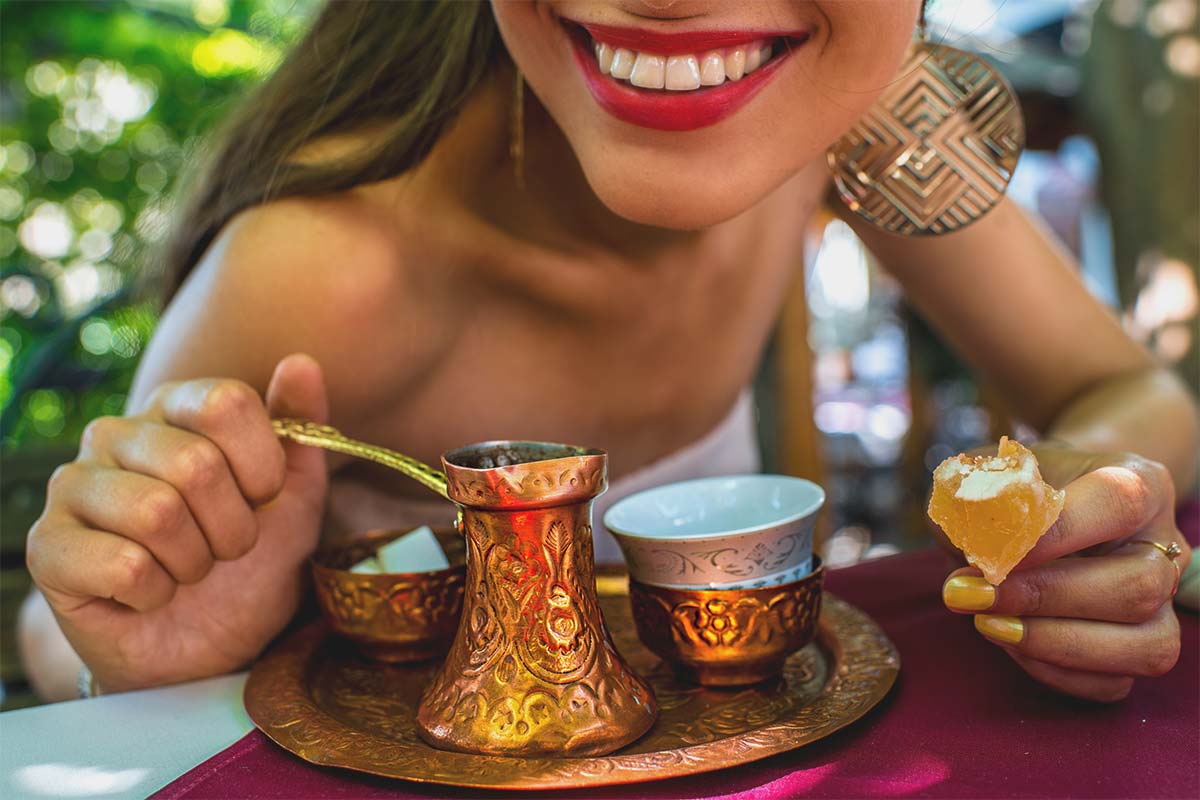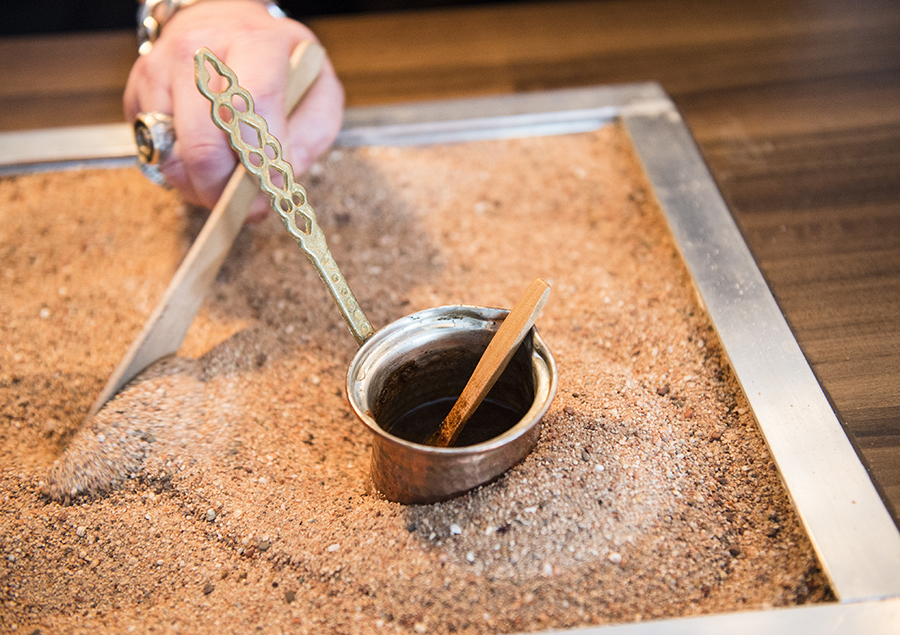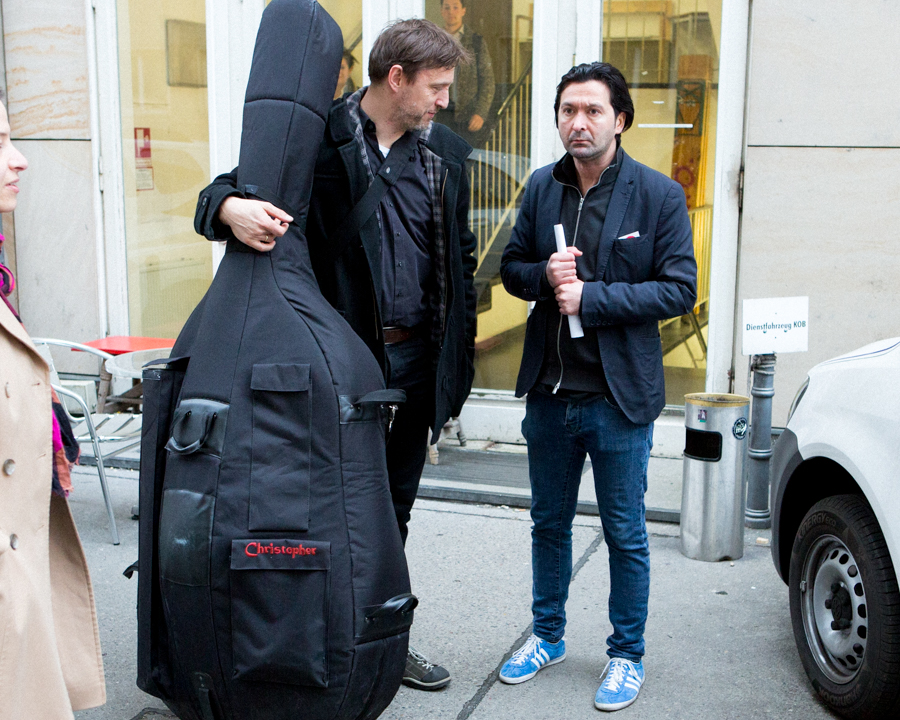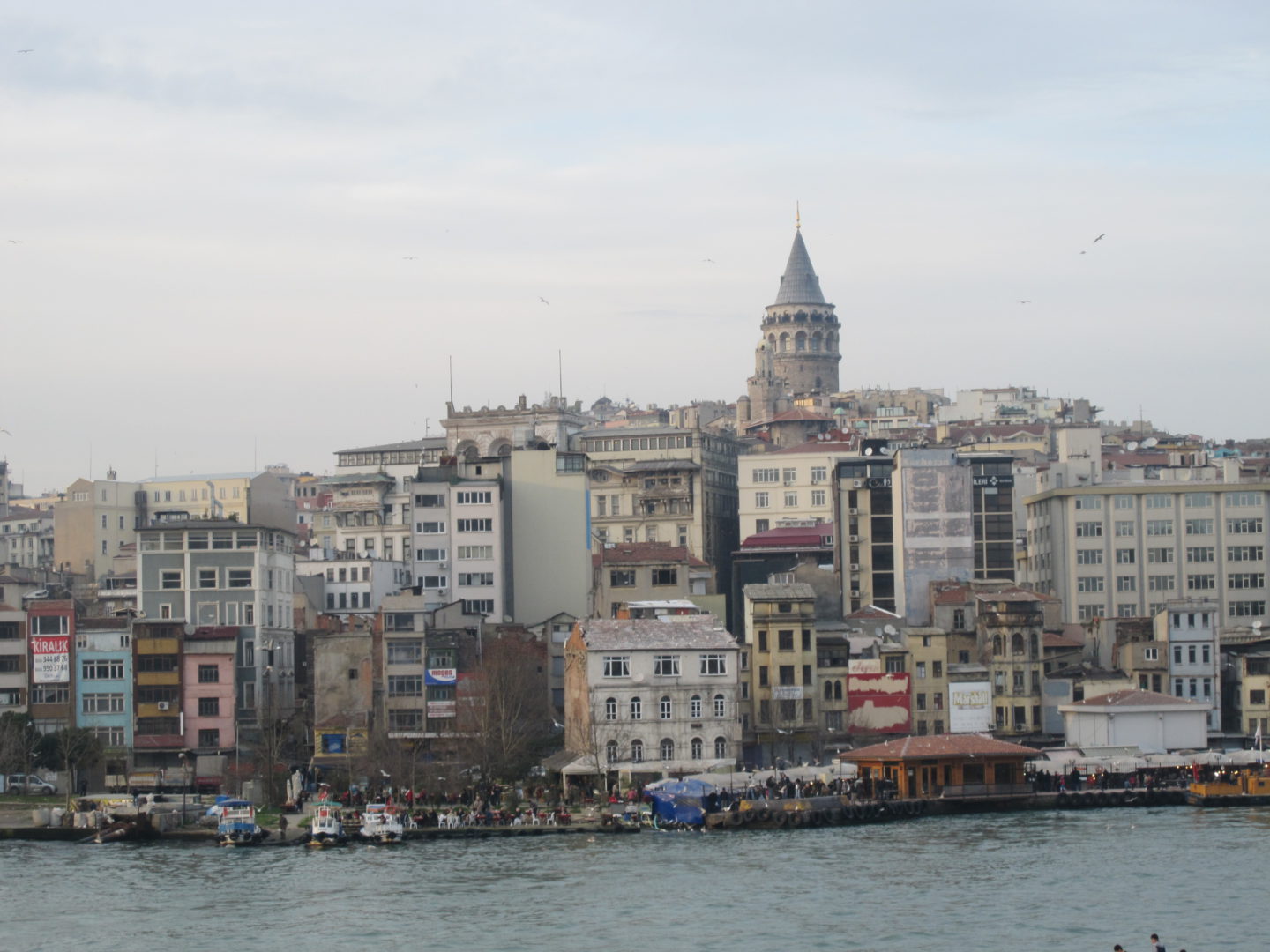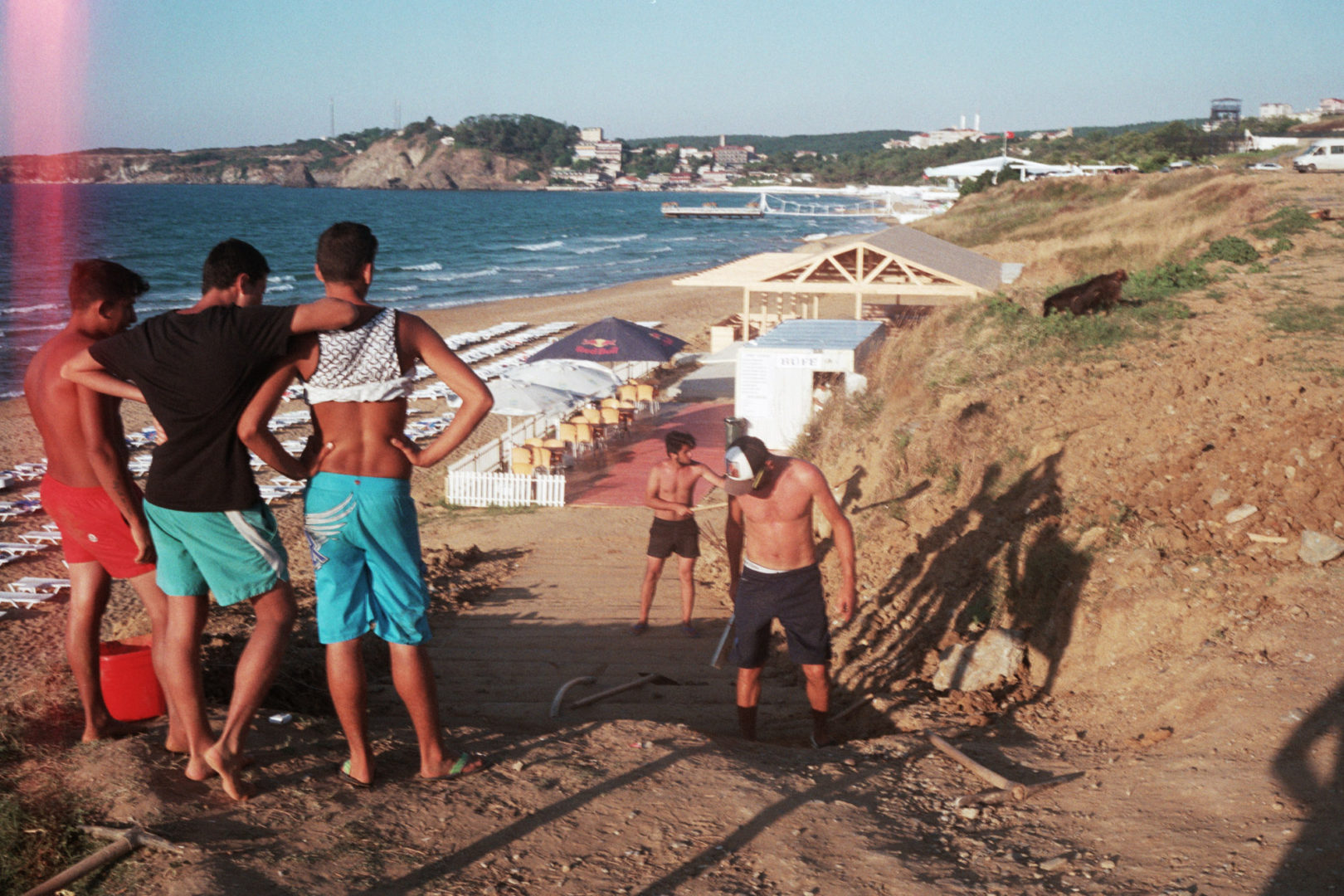Şeyda explains why it’s not possible to imagine Turkish life without coffee. Turkish coffee enjoys enormous popularity in Turkey. And recently, you won’t just find it simmering in the many coffee houses of Istanbul on a burner, but also in more and more Turkish cafés in Germany. What makes türk kahvesi so special? Here are six reasons!
The Preparation
1. … because the preparation itself is something special. Before there were electric stove tops, the cezve (a small, long-handled pot), which is most often made of brass or copper, was placed on the hot sand of a fireplace and the coffee was cooked by stirring it slowly, so that the aroma could permeate throughout the room. The concoction simmers until a good amount of foam appears on top of the cezve. Finally, the drink is served in small cups with lokum (Turkish delight). As of three years ago, this procedure for preparing coffee and the Turkish coffee culture are UNESCO World Cultural Heritages.
Round the Clock
2. … because you can drink it anytime. If you drink it in the morning, the high amount of caffeine keeps you awake and lively and gets you through a stressful day. After dinner, it’s a good way to round off the longest meal of the day.
Health
3. … because it’s healthy. A cup of Turkish coffee contains 11 % vitamin B2, 6% vitamin B5, 3% manganese and potassium and 2% magnesium und nicotinic acid. According to the most recent study results, a cup of coffee a day lowers the chances of getting Alzheimer’s, strengthens the liver and helps burn fat more quickly.
Fortune Telling
4. … because it gets a conversation going. Reading coffee grounds is a good diversion from daily life. In Turkish they say: “Fala inanma, falsız kalma.” In English: “Don’t believe your fortune, but don’t go without one.” When drinking, be sure that the coffee grounds and some liquid remain at the bottom of the cup. Then, you turn the saucer upside-down and lay it on top of the cup. Before you can turn the cup upside-down, you must first turn it in a circular motion from the outside towards the inside three times. When you turn it over, you make a wish. Then, you’ve got to wait until the cup has cooled down before using a lot of imagination or some intuition to interpret the black coffee grounds that have left different traces on the sides of the cup. Normally, symbols like animals, pathways, letters or other images are recognisable. At the end, the symbol on the saucer is read as well.
If you don’t know anyone who has mastered reading coffee grounds, just go to the next best Turkish cafe and see if you can find a “professional falcı”. Otherwise, you can magic your own falcı out of your pocket with your smartphone. You photograph the cup and then send the pictures to registered users at www.binnaz.com.tr. The app for it is called “Binnaz Abla – En Şekerli Fal”, and is in Turkish and English. After entering some information, you can choose the person who will interpret the grounds and ask questions about your future. A nice pastime.
Engagement
5. … because it’s an important part of getting engaged. The future groom must visit the family of his future bride with his family and compete for their daughter. The oldest member of the family presents their intention for marriage, and after they have agreed, coffee is served. The young man must drink the cup with salty coffee in order to prove his love.
40 years
6. … because a cup of coffee joins people together for 40 years. „Bir fincan kahvenin 40 yɪl hatɪrɪ vardɪr.“ This saying means that no one forgets a good deed and always remembers it. Even if the help, small or large, came 40 or 80 years ago, it isn’t forgotten. The following story is the origin of the saying: Once, in the Ottoman Empire, there lived a friendly coffee house owner in the Istanbul district of Üsküdar. He had an open ear for every guest and always tried to be helpful. One day, a Greek captain entered his establishment and sat in a dark corner enjoying his nargile (shisha). At the same time, an Ottoman çeri (elite soldier) was present, and he was not pleased to see a Christian guest. The çeri treated all those present to a Turkish coffee, underlining at the top of his voice, that the infidel Greek wasn’t included in the invitation. The innkeeper complied, but then sat down with the captain with two cups of coffee. The çeri reminded him assertively that the Greek was not included. The friendly owner simply answered that the captain was his guest and that he had bought him a coffee himself. The Greek captain was so delighted with the gesture that he continued to think about the warm-heartedness of the man for a long time back in his homeland. 40 years later, during devastating conflicts between Greeks and Ottomans, the innkeeper was taken captive and sold as a slave. His new master was the captain, who hadn’t forgotten him nor his friendliness after 40 years. He gave the innkeeper his freedom and brought him back home safely.
Numerous songs have even been written about this saying. A popular one was sung by Muazzez Ersoy:
Falls ihr jetzt auch Lust auf einen türkischen Mokka bekommen habt, dann nichts wie los in das nächste türkische Café. Meine Kolleginnen haben für euch Listen mit den besten Cafés aufgestellt.
Credits
Image: shutterstock.com
